Archive
26 August 2022
Quantum heat pump: a new measuring tool for physicists
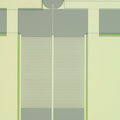
Physicists from TU Delft, ETH Zürich and the University of Tübingen have built a quantum scale heat pump made from particles of light. This device brings scientists closer to the quantum limit of measuring radio frequency signals, useful in for example the hunt for dark matter.
26 August 2022
New CRISPR-Cas system with on-off switch cuts proteins
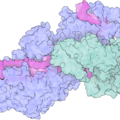
Researchers from TU Delft in the group of Stan Broun have discovered a CRISPR-Cas system that cuts proteins instead of DNA.
25 August 2022
Cells: strong at the right place and time
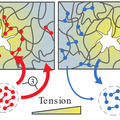
Researchers from TU Delft and NWO institute AMOLF discovered how certain molecular bonds make living cells both flexible, in order to move, as well as strong, in order to withstand forces.
15 August 2022
TU Delft iGEM team aims to develop sensor to detect GHB in drinks
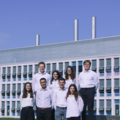
Someone may slip drugs into your drink without you noticing, after which you may not be able to think clearly. However, this kind of drugging can almost never be proven, because GHB disappears from the blood within 3 hours. The iGEM student team at TU Delft is working on a fast sensor to detect GHB in drinks. This will alert the user and provide evidence of drugging.
04 August 2022
TU Delft researchers create flow-driven rotors at the nanoscale
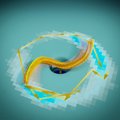
Onderzoekers van de TU Delft hebben de kleinste door stroming gedreven motoren ter wereld ontwikkeld. Geïnspireerd door de iconische Nederlandse windmolens en door biologische motoreiwitten hebben ze een zichzelf configurerende, stromingsgedreven turbine uit DNA gemaakt, die energie van een elektrische of zoutgradiënt omzet in bruikbaar mechanisch vermogen. De resultaten bieden perspectief voor de ontwikkeling van actieve robotica op nanoschaal. Het artikel is vandaag gepubliceerd in Nature Physics.
21 July 2022
NextSkins: EIC Pathfinder grant for collaborative living materials research
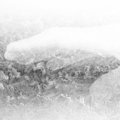
A team of researchers from TU Delft, Imperial College London, and Aalto University have received a EIC Pathfinder Challenge grant of 4 million euros for their NextSkins research project on Engineered Living Materials.
14 July 2022
ERC Proof of Concept grant for Valeria Garbin

Valeria Garbin, Associate Professor at the department of Chemical Engineering, has received a Proof of Concept grant from the European Research Council (ERC) last May, to develop her acoustic-bubble microrheology (ABuMic) method into a commercial instrument. This method enables researchers to probe the properties of liquid formulations, such as shampoo, mayonnaise, inks and paints, in flow conditions that are inaccessible to normal measuring devices but typical of many manufacturing processes. The ERC awarded the Proof of Concept funding to Garbin along with 54 other principal investigators across Europe.
08 July 2022
Evolutionary model predicts how cells control the partitioning of their molecules
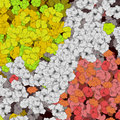
Researchers from the Max Planck Institute for Dynamics and Self-Organisation in Göttingen, Germany, and the TU Delft in the Netherlands have developed a new method to study how mixtures, consisting of many different molecules, interact to reliable form different droplets, as happens continuously in the living cell. This is the first time that scientists designed a model of many interacting molecules that can predict how particular droplets form. They published their findings in PNAS this week.
01 July 2022
Vidi grants for eight leading TU Delft researchers

28 June 2022
Baker’s yeast with human muscle genes
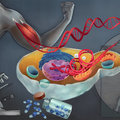
Biotechnologist Pascale Daran-Lapujade and her group at Delft University of Technology managed to build human muscle genes in the DNA of baker’s yeast. This is the first time researchers have successfully placed such a vital human feature into a yeast cell.